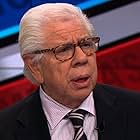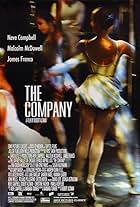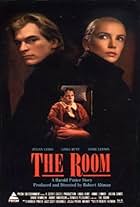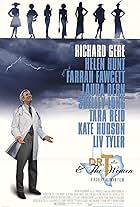This follow-up to Robert Altman's "Tanner '88" (1988) originally aired as a four-part TV-series on HBO. Michael Murphy and Cynthia Nixon reprise their roles as Jack Tanner and Alex Tanner, with the former presidential candidate now teaching at Michigan State, while his daughter is a Manhattan-based documentary filmmaker who also teaches at the New School.
Basically, there's only one real character in this film and that's daughter Alex Tanner. It's hardly a person one can sympathize with, since she is a self-indulgent howler with seemingly only one goal, rehabilitating her father, Jack Tanner, whom she adores unconditionally.
According to Altman the film is primarily a spoof on the new documentary film-making, which he didn't intended as such, he admitted in an interview. The question is, what was the original idea for the film?
Well, the writing suggests a much more dramatic approach, but on that level it doesn't work. But with Altman, you already know this is gonna be a loosely constructed stew, highly dependent on high-profile cameos, but the irony is that this film essentially has become what Altman claims his own film ended up to be, a spoof about film-making itself, and documentary film-making in particular. "Tanner on Tanner" is about nothing. Of course it's not a documentary, but filmed as one and looks like one, shot in verité style. It's not drama. It's no allegory on politics. It's - if anything - a self-indulgent look at the very process of film-making.
At one point, in the last part of the series, the student of Alex who is making a film about her film, proclaims: 'Look at Michael Moore. Old-fashioned documentary film-making is dead.'
In many ways this seems true, at least if you aspire your documentary to get any attention at festivals. Facts are for television, and it's only recently that the documentary has become an accepted cinematic approach. For a long time, there was only one form. The factual, the journalistic approach. Now there are many, but more so than ever, the documentary has become a political pamphlet, a very powerful piece of propaganda. This makes it much easier for us to judge them on their cinematic qualities, instead of their qualities as objective journalism or an authentic portrait of a certain subject or person.
Camera Obscura --- 6/10

































